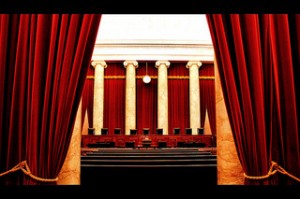20 Jun Lane v. Franks: The Good, the Bad, the Ugly
The Supreme Court held unanimously that the First Amendment protects a public employee who provides truthful sworn testimony, compelled by a subpoena, outside the course of his or her ordinary responsibilities.
The good: The Court was clear that if employees admit to wrongdoing while testifying they can still be disciplined and that false or erroneous testimony or testimony that unnecessarily discloses sensitive, confidential, or privileged information may balance the Pickering scale in the employer’s favor.
The bad: The Court read “official job duties” narrowly to exclude speech about information merely learned at the job.
The ugly: The Court doesn’t decide the obvious next question: is an employee’s truthful sworn testimony, which is part of an employee’s ordinary responsibilities, protected by the First Amendment?
Edward Lane was a program director at a public community college in Alabama. He fired state legislator Suzanne Schmitz because she was on his payroll but wasn’t doing any work. Lane testified about why he fired her at a grand jury indictment and two criminal trials that resulted in her conviction for theft and mail fraud. Meanwhile, Lane’s program experienced “considerable budget shortfalls” and he was laid off. Lane claimed he was fired in retaliation for his testimony in violation of the First Amendment.
The First Amendment protects public employee speech made as a citizen on a matter of public concern. In 2006 in Garcetti v. Ceballos the Court held that when public employees speak pursuant to their official job duties they are speaking as employees and not as citizens for First Amendment purposes. Lane v. Franks provided the Court its first opportunity to apply Garcetti v. Ceballos.
The Eleventh Circuit concluded Lane’s speech wasn’t citizen speech protected by the First Amendment. Even though Lane wasn’t routinely subpoenaed as part of his official job duties, what he testified about he learned at his job.
The Supreme Court disagreed. The Court described subpoenaed speech as “quintessential” citizen speech because anyone who testifies has an obligation to tell the truth. And in this case it was undisputed that Lane’s ordinary job duties did not include testifying in court proceedings, meaning Lane wasn’t speaking as an employee when he testified. “[T]he mere fact that a citizen’s speech concerns information acquired by virtue of his public employment does not transform that speech into employee-rather than citizen-speech. The critical question under Garcetti is whether the speech at issue is itself ordinarily within the scope of an employee’s duties, not whether it merely concerns those duties.”
Significantly, the Court did not decide whether the First Amendment protects truthful subpoenaed speech made as part of a public employee’s ordinary job duties. As Justice Thomas pointed out in his concurring opinion, for some public employees like police, crime scene technicians, and laboratory analysts, “testifying is a routine and crucial part of their employment duties.”
Finally, the Court granted college President Steve Franks qualified immunity concluding that Eleventh Circuit and Supreme Court precedent did not preclude him for concluding that he could fire Lane because of Lane’s testimony under oath and outside the scope of his ordinary job responsibilities.
Image courtesy of Flickr by Phil Roeder (creative common license, no changes made).



